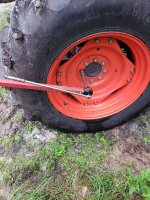I looked into this years ago, and the break-out force on most of the better 1/2" ratchets seemed to be around 500 ft-lb. I don't know what 1/2" breaker bars are rated to handle, but spent much of my late teens and early 20's bouncing and jumping on the end of a 4' pipe extension slipped over the handle of mine, and it never broke (back then... it has since).
I will say that I've seen Craftsman ratchets break more than all other brands combined. But then again, back when I was spending all my free hours wrenching on cars (1990's), Craftsman also sold more ratchets than probably all other brands combined. I've also seen a few broken Snap-On ratchets, but oddly, never a broken vintage Proto.
The vintage Proto ratchets make a good hammer too, they're a bit large in the hand by today's standards. But if you're in the habit of breaking ratchets, and don't mind their larger head size, that may be the brand for you. I don't know if their new stuff is any good, they're owned by Stanley now, but their original 1960's hardware made out of their Los Angeles plant was bullet-proof.
The only Craftsman ratchets I own today are two ratcheting clicker-type torque wrenches. They don't get used hard, so they haven't failed. All of the other Craftsman ratchets I have ever owned broke, and were tossed in the garbage.
I've never used, probably never even seen, a Harbor Freight ratchet. But you also couldn't pay me to use one. I'm not that cheap, and I like the skin to remain on my knuckles as much as possible.


